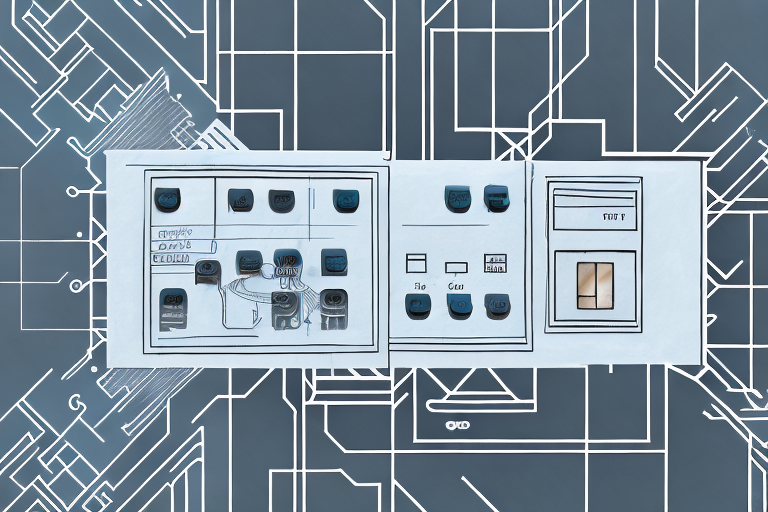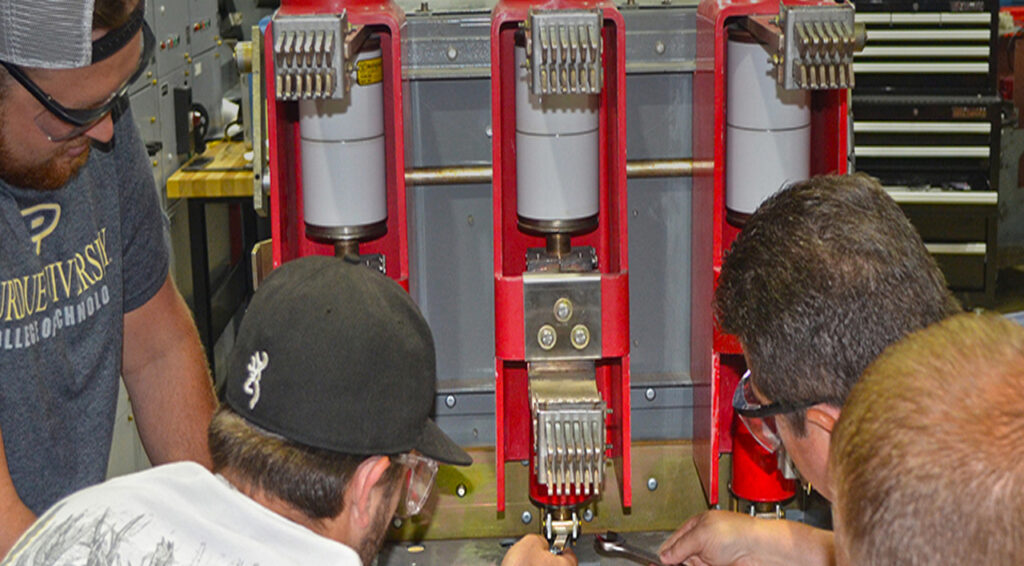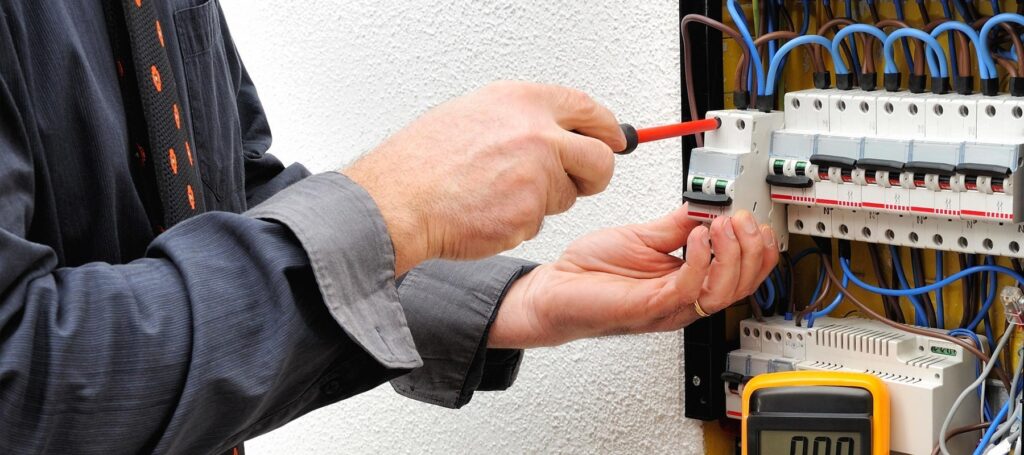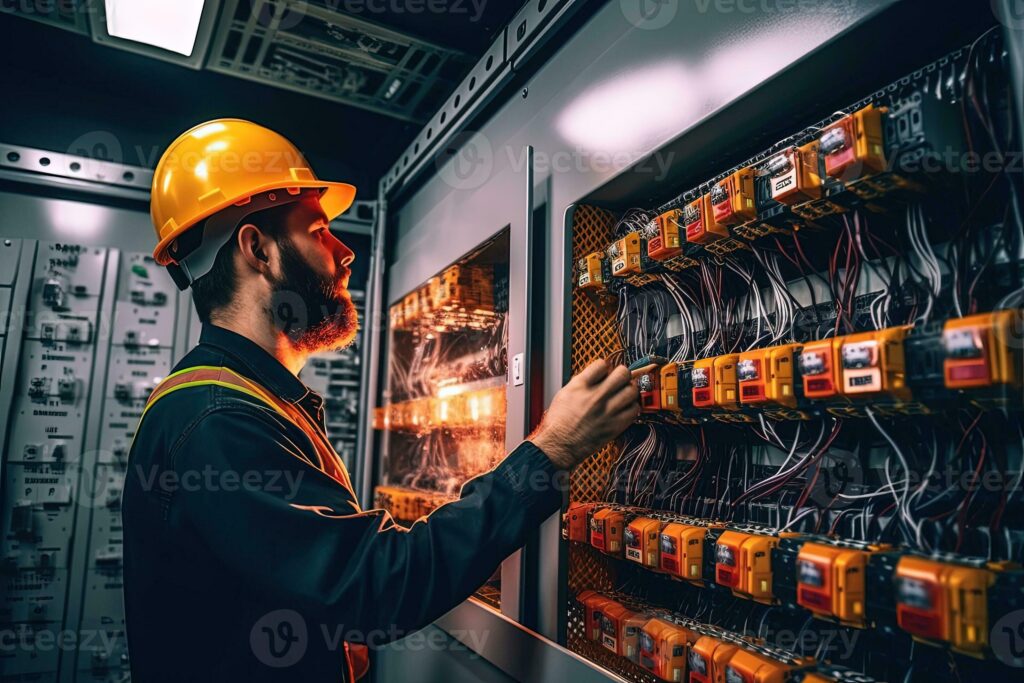Regular circuit breaker maintenance is an essential aspect of keeping your electrical system safe and reliable. Circuit breakers play a crucial role in protecting your home from potential hazards caused by electrical overload. By understanding their function and conducting routine maintenance, you can ensure a consistent power supply and prevent electrical fires.
Understanding Circuit Breakers
Before delving into the importance of regular maintenance, it is important to understand the role that electric circuit breaker play in your home. Circuit breakers are protective devices that automatically interrupt electrical circuits when they detect an overload or a short circuit. They act as the first line of defense against electrical problems and ensure the safety of your electrical system.
The Role of Circuit Breakers in Your Home
In your home, circuit breakers are responsible for distributing electricity to different areas or appliances. They prevent electrical wiring from overheating by tripping the circuit and cutting off the power supply when there is an excessive electrical load. This protective mechanism safeguards your electrical system from damage and reduces the risk of electrical fires.
Let’s take a closer look at how circuit breakers work. When the electrical current flowing through a circuit exceeds the breaker’s rated capacity, the breaker automatically trips, interrupting the flow of electricity. This prevents the wires from overheating and potentially causing a fire. Once the issue causing the overload or short circuit is resolved, the breaker can be reset, restoring power to the circuit.

It is important to note that circuit breakers are not only responsible for protecting your home from electrical fires, but they also provide convenience and flexibility. By having different circuits in your home, you can control which areas or appliances receive power. For example, you can have separate circuits for your kitchen, living room, and bedrooms, allowing you to easily manage the electrical load and avoid overloading a single circuit.
Different Types of Circuit Breakers
There are several types of circuit breakers available, each designed for specific applications. Let’s explore some of the common types:
1. Thermal Circuit Breakers: These types of circuit breakers respond to heat. When the temperature of the circuit exceeds a certain threshold, the breaker trips and interrupts the flow of electricity. Thermal circuit breakers are commonly used in appliances and electronic devices to prevent overheating and potential damage.
2. Magnetic Circuit Breakers: Unlike thermal circuit breakers, magnetic circuit breakers detect sudden increases in current. They are designed to protect against short circuits caused by a sudden surge of electricity. Magnetic circuit breakers are commonly used in industrial settings where heavy machinery and equipment are present.
3. Ground Fault Circuit Interrupters (GFCIs): GFCIs are specifically designed to protect against electrical shocks in areas prone to moisture, such as bathrooms and kitchens. They monitor the flow of electricity and instantly shut off the circuit if they detect a ground fault, which occurs when the electrical current deviates from its intended path and flows through a person or an object. GFCIs are crucial for ensuring the safety of individuals and preventing electrical accidents.
It is important to choose the right type of circuit breaker for each application to ensure optimal protection and performance. Consulting with a qualified electrician can help determine the appropriate circuit breakers for your specific needs.
The Need for Regular Maintenance
Maintaining your circuit breakers on a regular basis is crucial for the overall safety and effectiveness of your electrical system. By conducting routine check-ups and maintenance, you can prevent potential electrical fires and ensure a consistent power supply.
Regular maintenance of circuit breakers involves a series of important tasks that help in the proper functioning of your electrical system. These tasks include visual inspections, testing for proper voltage, checking for loose connections, and cleaning or replacing worn-out components. By performing these tasks, you can identify any potential issues and address them before they escalate into major problems.
One of the primary reasons for regular circuit breaker maintenance is to prevent electrical fires. Faulty circuit breakers or overloaded circuits can generate excessive heat, which can lead to electrical fires. Regular maintenance allows you to identify potential issues such as loose connections, worn-out components, or damaged insulation. By addressing these issues promptly, you can eliminate fire hazards and enhance the safety of your home.
Ensuring a consistent power supply is another crucial aspect of regular circuit breaker maintenance. Over time, circuit breakers may become worn or faulty, leading to frequent tripping or power outages. This can be highly inconvenient and disruptive, especially in commercial settings where uninterrupted power supply is essential for smooth operations. By inspecting and maintaining your circuit breakers, you can identify any performance issues and take appropriate actions to ensure uninterrupted power supply.
During the maintenance process, it is also important to consider the specific needs of your electrical system. Different types of circuit breakers require different maintenance procedures. For example, air circuit breakers may need cleaning and lubrication, while vacuum circuit breakers may require insulation resistance tests. By understanding the unique requirements of your circuit breakers, you can tailor your maintenance approach accordingly.
Regular maintenance not only helps in preventing electrical fires and ensuring consistent power supply but also extends the lifespan of your circuit breakers. By taking care of your circuit breakers, you can avoid premature failures and the need for costly replacements. This can save you both time and money in the long run.
In conclusion, regular maintenance of circuit breakers is essential for the safety, efficiency, and reliability of your electrical system. By investing time and effort in routine check-ups and maintenance, you can prevent potential electrical fires, ensure a consistent power supply, and prolong the lifespan of your circuit breakers. So, make it a priority to include circuit breaker maintenance in your overall home or business maintenance plan.

The Process of Circuit Breaker Maintenance
Effectively maintaining your circuit breakers involves following a series of steps and taking specific safety measures. By understanding the basic maintenance process, you can ensure a thorough inspection and proactively address any potential problems.
Regular maintenance of circuit breakers is essential to ensure the safety and reliability of electrical systems. Neglecting maintenance can lead to malfunctions, electrical fires, and even injuries. Therefore, it is crucial to understand the steps involved in circuit breaker maintenance and the safety measures that need to be followed.
Basic Steps in Circuit Breaker Maintenance
The first step in circuit breaker maintenance is to switch off the main power supply to the electrical panel. This ensures your safety during the inspection process. It is important to remember that working on live electrical components can be extremely dangerous and should only be done by qualified professionals.
Once the power supply is turned off, you can visually inspect the circuit breakers for any signs of damage, such as loose wires or evidence of overheating. Loose connections can cause arcing, which can lead to electrical fires. Therefore, tightening any loose connections is a vital step in maintaining the integrity of your circuit breakers.
In addition to inspecting for physical damage, it is also important to check the functionality of the circuit breakers. This can be done by manually tripping and resetting each breaker to ensure that it is working correctly. If any breakers fail to trip or reset properly, they should be replaced immediately to prevent potential electrical hazards.
Safety Measures During Maintenance
During circuit breaker maintenance, it is crucial to practice proper safety measures to protect yourself and others from potential hazards. Always wear appropriate personal protective equipment (PPE), such as safety goggles and gloves, to prevent any potential injuries. The PPE acts as a barrier between you and any potential electrical shock or arc flash incidents.
Furthermore, it is important to ensure that the area around the electrical panel is clear of any flammable materials. Circuit breakers can generate heat during normal operation, and having flammable materials nearby can increase the risk of fire. Keeping the area clean and free from clutter also allows for easier access to the panel during maintenance.
Lastly, it is crucial to emphasize that only individuals with proper training and certification should handle live electrical components. Working on live circuits without the necessary knowledge and experience can lead to severe injuries or even fatalities. It is always best to hire a licensed electrician or qualified maintenance personnel to perform circuit breaker maintenance.
In conclusion, circuit breaker maintenance is a critical aspect of ensuring the safety and reliability of electrical systems. By following the basic steps and practicing proper safety measures, you can effectively maintain your circuit breakers and prevent potential hazards. Regular maintenance not only extends the lifespan of the circuit breakers but also provides peace of mind knowing that your electrical system is in good working condition.

Identifying Common Circuit Breaker Issues
Understanding and identifying common circuit breaker issues is vital for proactive maintenance and troubleshooting. By being aware of the signs of a faulty circuit breaker, you can take immediate action and prevent further damage.
Signs of a Faulty Circuit Breaker
Some common signs of a faulty circuit breaker include frequent tripping, a burning smell, flickering lights, or hot electrical outlets. If you notice any of these signs, it is essential to investigate and address the issue promptly. Ignoring these warning signs can lead to more severe electrical problems or even electrical fires.
Dealing with Circuit Breaker Problems
While some minor circuit breaker issues can be fixed as part of routine maintenance, more complex problems may require the expertise of a professional electrician. Attempting to repair or replace circuit breakers without proper knowledge and training can be dangerous and may cause further damage to your electrical system. It is crucial to seek professional help when dealing with complex circuit breaker problems.
When to Seek Professional Help
While regular maintenance can help prevent common circuit breaker issues, certain situations require the expertise of a professional electrician. Recognizing these situations and knowing when to seek professional help is essential for the safety of your home and electrical system.
Situations Requiring a Professional Electrician
If you notice persistent electrical problems despite regular maintenance, such as repeated circuit breaker tripping or power outages, it is advisable to consult a professional electrician. Additionally, if you are unsure about the integrity of your circuit breakers or need assistance with replacing or upgrading them, a qualified electrician can provide the necessary expertise.
Choosing the Right Electrician for Maintenance
When selecting an electrician for circuit breaker maintenance, it is essential to consider their qualifications, experience, and reputation. Look for electricians who are licensed, insured, and have a proven track record in electrical maintenance. Seeking recommendations from trusted sources or reading customer reviews can help you make an informed decision.
In conclusion, regular circuit breaker maintenance is crucial for the safety and reliability of your electrical system. Understanding the role of circuit breakers, the need for maintenance, and the process involved allows you to proactively identify and address potential issues. By taking the necessary steps to maintain your circuit breakers and knowing when to seek professional help, you can ensure the continued operation of your electrical system while minimizing the risk of electrical fires and other electrical problems.
More to read: The Impact of Light Switch Design on Home Interior Aesthetics

